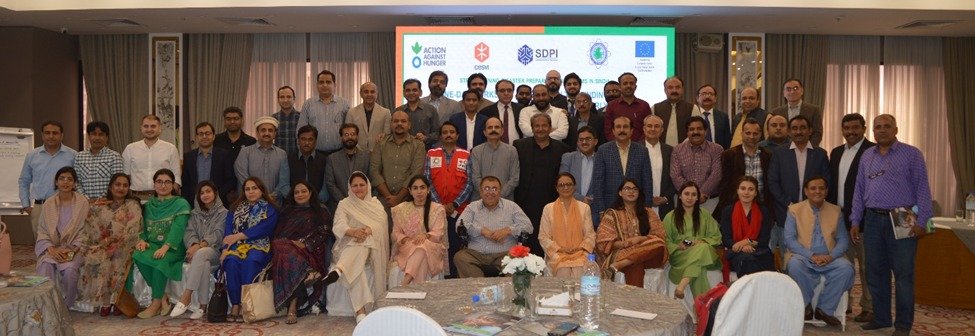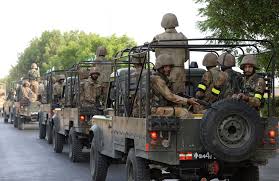Action Against Hunger (ACF) and CESVI Pakistan collaboratively hosted a one-day Finding and Dissemination Workshop today under the auspices of the Humanitarian Aid Department of the European Commission (ECHO) funded project, “Strengthening Disaster Preparedness Systems in Sindh.” The event, held at a local hotel in Karachi, brought together key stakeholders to address crucial issues surrounding disaster preparedness and response in the region.
In conjunction with the US-Pakistan Center for Advanced Studies in Water (USPCASW – MUET), ACF undertook a comprehensive study to review the existing early warning system in Sindh. Concurrently, CESVI partnered with the Sustainable Development Policy Institute (SDPI) to analyze bottlenecks in the multi-hazard early warning systems and information dissemination across the province.
Representatives from various government departments, non-governmental organizations (NGOs), United Nations agencies, media outlets, research institutes, and academia participated in the workshop, collectively aiming to address identified gaps at both the provincial and district levels.
Field Coordinator ACF, Hussain Ali Awan extended a warm welcome to all participants at the outset of the workshop. Mr. Zubair Siddiqui, Director of the Tropical Cyclone Warning Centre at the Pakistan Meteorological Department (PMD), commended the consortium’s efforts in strengthening the disaster preparedness system during his opening remarks.
Subsequently, project coordinators from ACF and CESVI provided updates on the DPDRR project, followed by presentations from Assistant Researcher – SDPI, Mr. Huzaifa, and Professor–MUET, Dr. Asmat Ullah on the findings and recommendations stemming from both studies.
Throughout the workshop sessions, stakeholders gained valuable insights into the existing gaps within the early warning system, with a particular focus on the media’s role in disaster management. Group work sessions facilitated the development of action plans based on proposed recommendations, covering short and long-term strategies and actions.
Key recommendations highlighted during discussions included the necessity to augment disaster management funds at both the provincial and district levels, improve response capacity, develop multi-hazard contingency plans, enhance evacuation strategies, and conduct simulation exercises to evaluate the effectiveness of disaster management plans.
Moreover, participants stressed the importance of providing training for media representatives in disaster reporting to ensure accurate and timely information dissemination during crises.
The workshop concluded with closing remarks from Assistant Director PDMA Sindh, Ajay Kumar Sewani, further emphasizing the collective commitment towards bolstering disaster preparedness and response mechanisms in Sindh.








